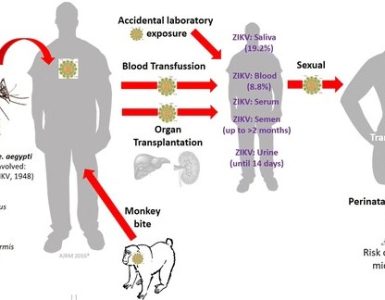 Scientists have sequenced the herpes virus genome identifying several hundred previously unknown proteins, paving the way for better understanding of complex mechanisms used by the virus.
Scientists have sequenced the herpes virus genome identifying several hundred previously unknown proteins, paving the way for better understanding of complex mechanisms used by the virus.
Researchers from the Max Planck Institute (MPI) of Biochemistry in Martinsried near Munich and the University of California in San Francisco have shown that the genome of this virus contains much more information than previously assumed.
More than 80 per cent of the world’s population is infected with the herpes virus, which can cause severe diseases in newborns and in persons with weakened immune system.
Researchers had already sequenced the herpes virus genome 20 years ago, thinking they could then predict all proteins that the virus produces (virus proteome).
Now, scientists have analysed the information content of the genome more precisely.
To carry out their study, the scientists infected cells with herpes virus and observed which proteins the virus produced inside the cell over a period of 72 hours.
In order for proteins to be produced at all, the cell machinery must first make copies of the genetic material as intermediate products (RNA).
While investigating the intermediate products of the herpes virus, the team discovered many novel RNA molecules which were in large part surprisingly short.
They also found that the organisation of information required for protein production in the virus genome was far more complex than previously assumed.
Annette Michalski, a scientist in the Department of Proteomics and Signal Transduction at the MPI of Biochemistry, was subsequently able to confirm directly the predicted viral proteins in the infected cell using mass spectrometry. This method enables an overview of the complete proteome of the virus-infected cell.
The results of the American and German researchers provide detailed insight into the complex mechanisms used by the virus.
“We showed that it’s not enough merely to know the virus genome to understand the biology of the herpes virus. What is important is to look at the products actually produced from the genome,” Michalski said in a statement.
The study was published in the journal Science.
Source: The Indian Express

















